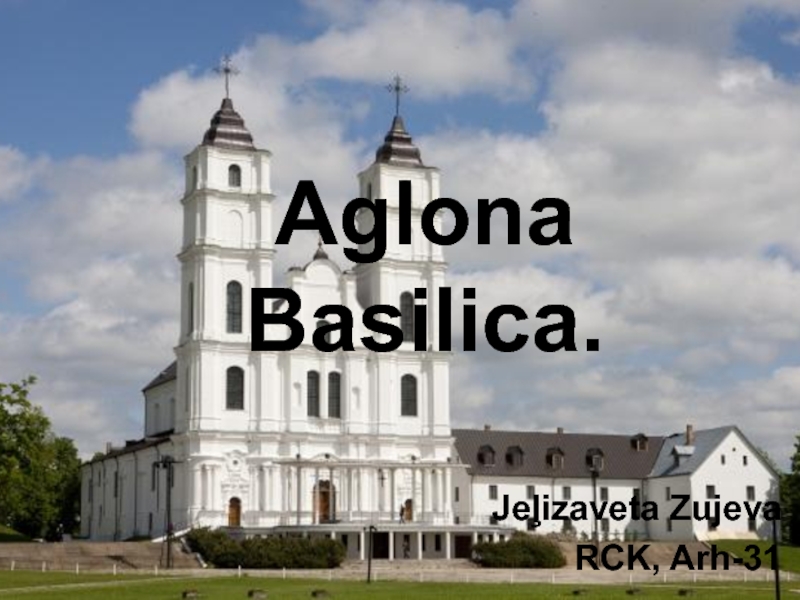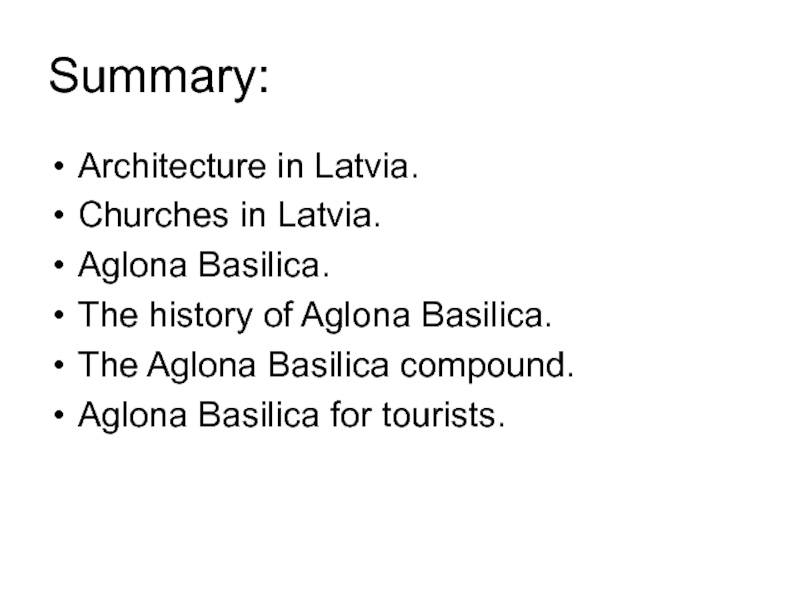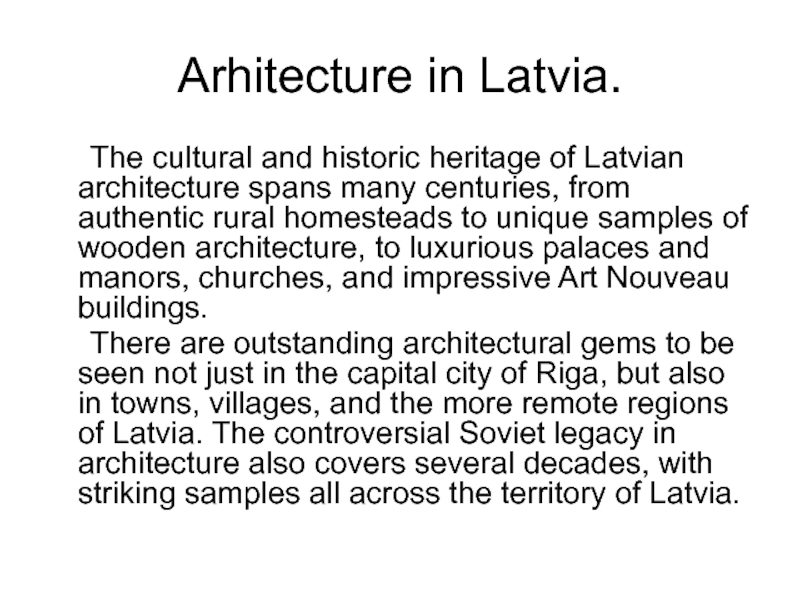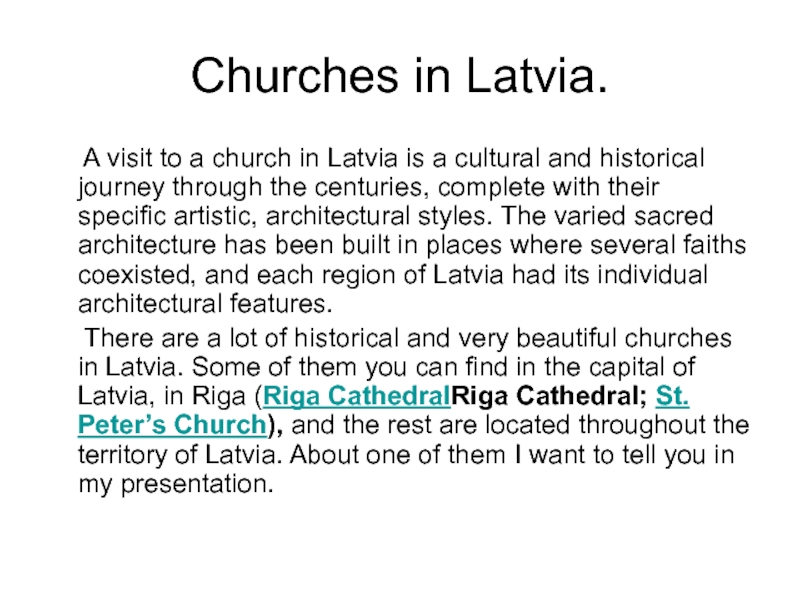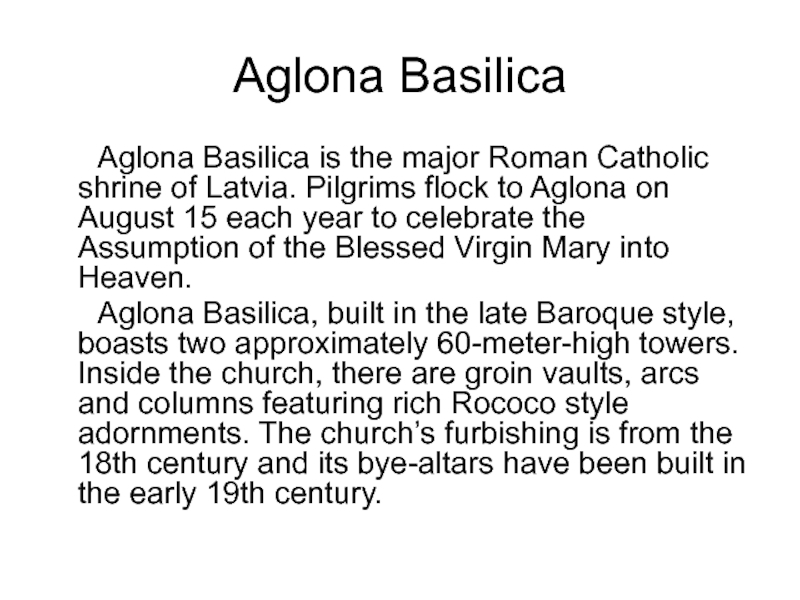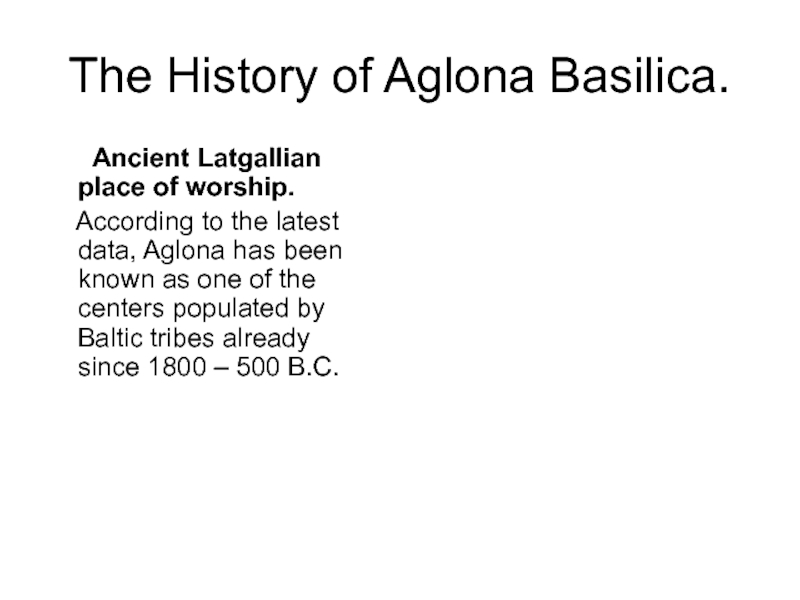- Главная
- Разное
- Дизайн
- Бизнес и предпринимательство
- Аналитика
- Образование
- Развлечения
- Красота и здоровье
- Финансы
- Государство
- Путешествия
- Спорт
- Недвижимость
- Армия
- Графика
- Культурология
- Еда и кулинария
- Лингвистика
- Английский язык
- Астрономия
- Алгебра
- Биология
- География
- Детские презентации
- Информатика
- История
- Литература
- Маркетинг
- Математика
- Медицина
- Менеджмент
- Музыка
- МХК
- Немецкий язык
- ОБЖ
- Обществознание
- Окружающий мир
- Педагогика
- Русский язык
- Технология
- Физика
- Философия
- Химия
- Шаблоны, картинки для презентаций
- Экология
- Экономика
- Юриспруденция
Aglona Basilica презентация
Содержание
Слайд 2Summary:
Architecture in Latvia.
Churches in Latvia.
Aglona Basilica.
The history of Aglona Basilica.
The
Aglona Basilica compound.
Aglona Basilica for tourists.
Aglona Basilica for tourists.
Слайд 3Arhitecture in Latvia.
The cultural and historic heritage of
Latvian architecture spans many centuries, from authentic rural homesteads to unique samples of wooden architecture, to luxurious palaces and manors, churches, and impressive Art Nouveau buildings.
There are outstanding architectural gems to be seen not just in the capital city of Riga, but also in towns, villages, and the more remote regions of Latvia. The controversial Soviet legacy in architecture also covers several decades, with striking samples all across the territory of Latvia.
There are outstanding architectural gems to be seen not just in the capital city of Riga, but also in towns, villages, and the more remote regions of Latvia. The controversial Soviet legacy in architecture also covers several decades, with striking samples all across the territory of Latvia.
Слайд 4Churches in Latvia.
A visit to a church in
Latvia is a cultural and historical journey through the centuries, complete with their specific artistic, architectural styles. The varied sacred architecture has been built in places where several faiths coexisted, and each region of Latvia had its individual architectural features.
There are a lot of historical and very beautiful churches in Latvia. Some of them you can find in the capital of Latvia, in Riga (Riga CathedralRiga Cathedral; St. Peter’s Church), and the rest are located throughout the territory of Latvia. About one of them I want to tell you in my presentation.
There are a lot of historical and very beautiful churches in Latvia. Some of them you can find in the capital of Latvia, in Riga (Riga CathedralRiga Cathedral; St. Peter’s Church), and the rest are located throughout the territory of Latvia. About one of them I want to tell you in my presentation.
Слайд 5Aglona Basilica
Aglona Basilica is the major Roman Catholic
shrine of Latvia. Pilgrims flock to Aglona on August 15 each year to celebrate the Assumption of the Blessed Virgin Mary into Heaven.
Aglona Basilica, built in the late Baroque style, boasts two approximately 60-meter-high towers. Inside the church, there are groin vaults, arcs and columns featuring rich Rococo style adornments. The church’s furbishing is from the 18th century and its bye-altars have been built in the early 19th century.
Aglona Basilica, built in the late Baroque style, boasts two approximately 60-meter-high towers. Inside the church, there are groin vaults, arcs and columns featuring rich Rococo style adornments. The church’s furbishing is from the 18th century and its bye-altars have been built in the early 19th century.
Слайд 6The History of Aglona Basilica.
Ancient Latgallian place of
worship.
According to the latest data, Aglona has been known as one of the centers populated by Baltic tribes already since 1800 – 500 B.C.
According to the latest data, Aglona has been known as one of the centers populated by Baltic tribes already since 1800 – 500 B.C.
